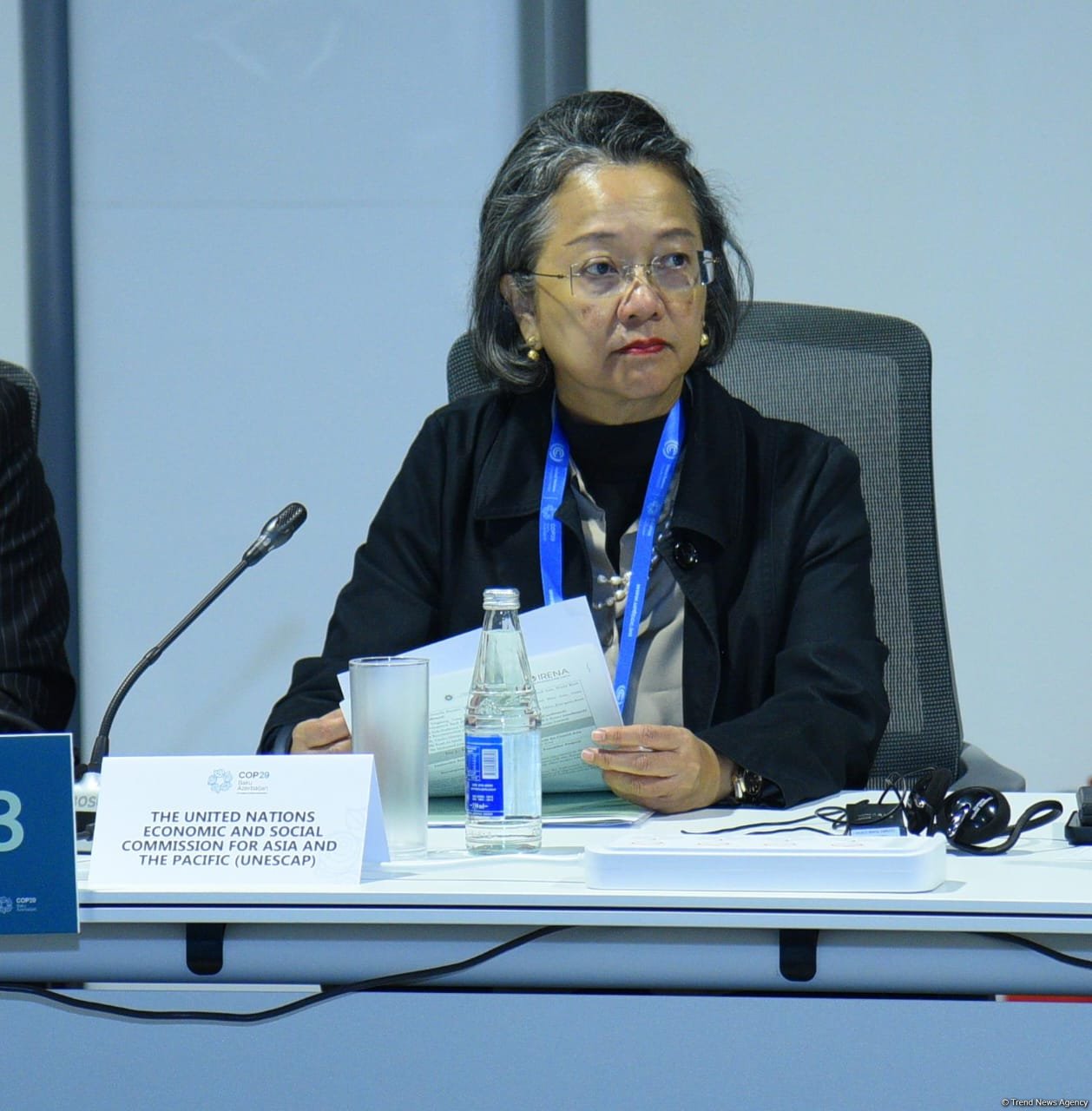BAKU, Azerbaijan, November 15. Domestic and international sources of financing with strong government support, such as carbon pricing and emissions trading schemes, as well as private sector participation, can help Central Asia attract the necessary capital to accelerate the energy transition and achieve both economic and climate goals, the Executive Secretary of the United Nations Economic and Social Commission for Asia and the Pacific (ESCAP) Armida Salsiah Alisjahbana said during the Ministerial Dialogue on Promoting Renewable Energy Transition in Central Asia, Trend reports.
“Central Asia is at a unique crossroads of energy transition, facing the daunting challenge of transforming fossil fuel-dependent energy systems while being able to harness the enormous potential of renewable energy,” she said.
Armida Alisjahbana noted that strengthening regional energy connectivity, with a focus on electricity grids, is an important way to promote sustainability and security of energy supply in the region. ESCAP member states endorsed the Regional Energy System Connectivity Roadmap in 2021, which includes a vision, a set of principles, and nine strategies to support energy system integration and sustainable development.
“Cross-border energy cooperation and grid interconnection are key to promoting renewable energy development in the region by further developing integrated power grids. Central Asian countries can optimize their diverse renewable resources, from hydropower in Tajikistan to wind resources in the Caspian Sea,” she stressed.
According to her, cross-border trade can create new sources of revenue for countries with excess renewable energy capacity, providing affordable clean energy to countries with higher demand. ESCAP is working with partners such as the Economic Cooperation Organization on strategies to create electricity trade platforms that take into account the diversity of the region and build on existing arrangements and integration efforts.
“Renewable energy development in Central Asia has been constrained by insufficient access to potential financing, as well as barriers including high actual and perceived investment risks, underdeveloped financial markets, limited data availability, lack of transparency around risk premiums, and a dearth of established projects that could serve as templates.
“Our preliminary findings on financing the energy transition emphasize the need for policy clarity, regulatory reforms, infrastructure development, and innovation in green finance,” she said.







